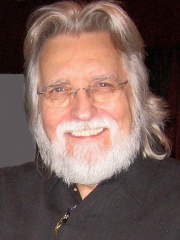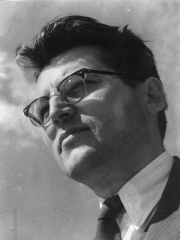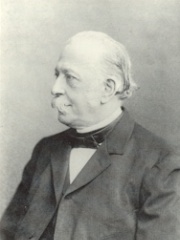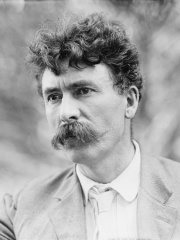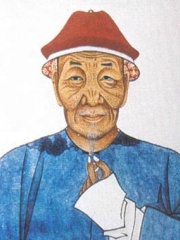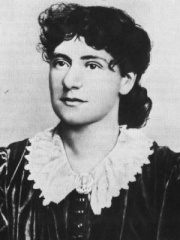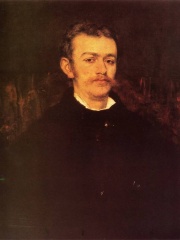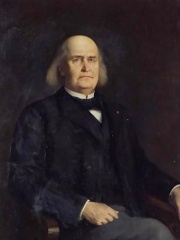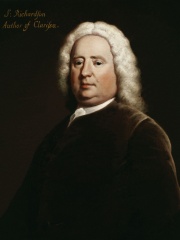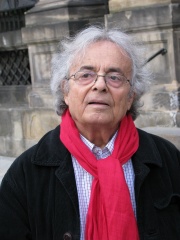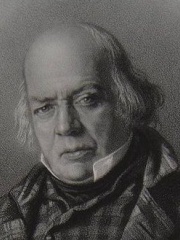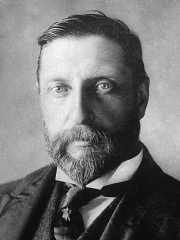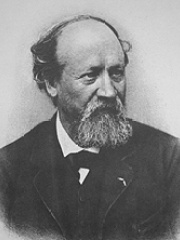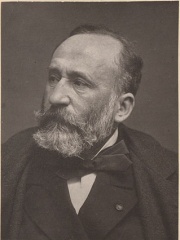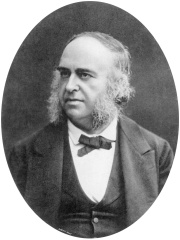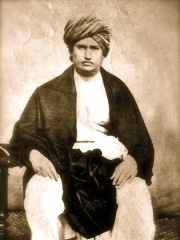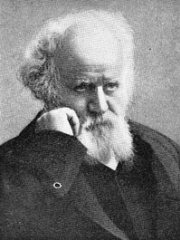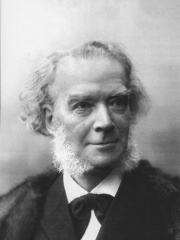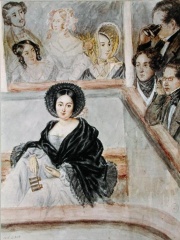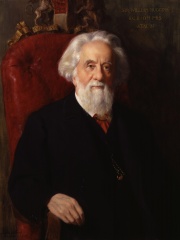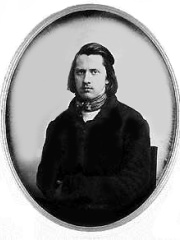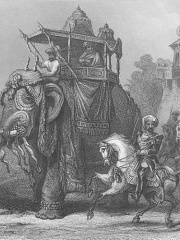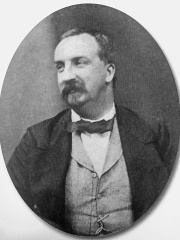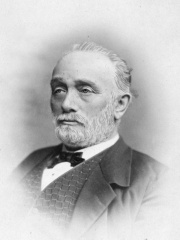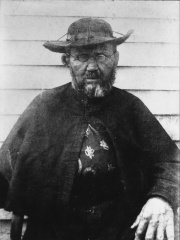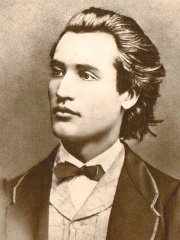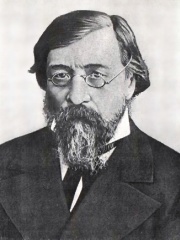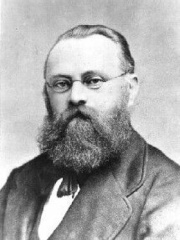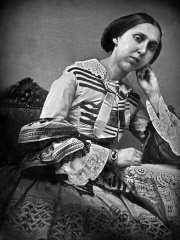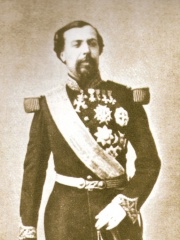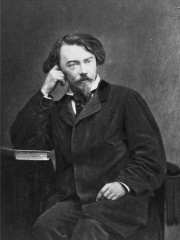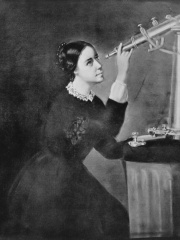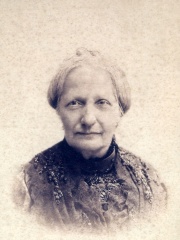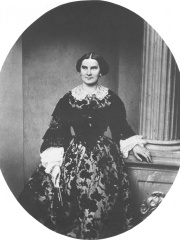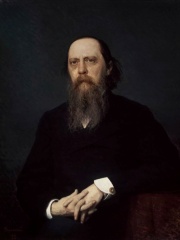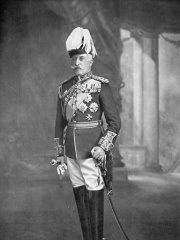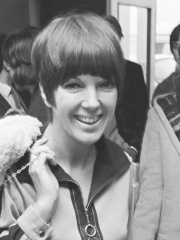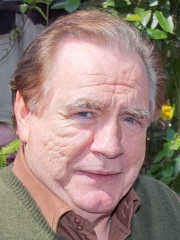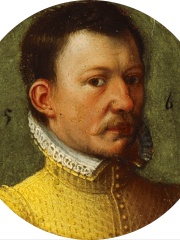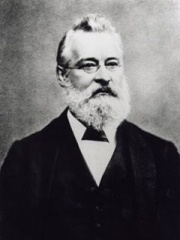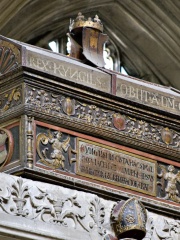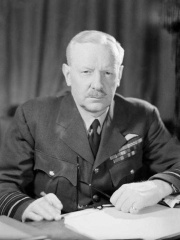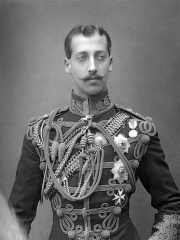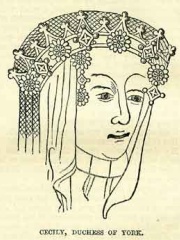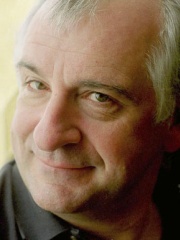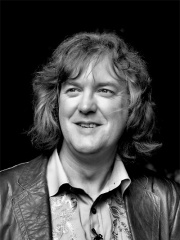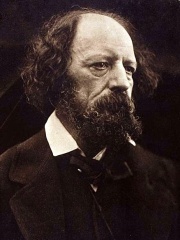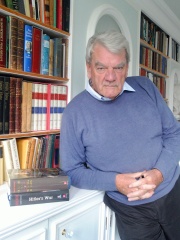WRITER
Wilkie Collins
1824 - 1889
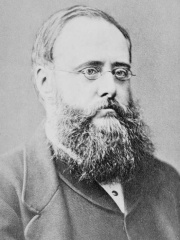
 Wilkie Collins
Wilkie Collins
William Wilkie Collins (8 January 1824 – 23 September 1889) was an English novelist and playwright known especially for The Woman in White (1860), a mystery novel and early sensation novel, and for The Moonstone (1868), which established many of the ground rules of the modern detective novel and is also perhaps the earliest clear example of the police procedural genre. Born to the London painter William Collins and his wife, Harriet Geddes, he moved with them to Italy when he was twelve, living there and in France for two years, learning both Italian and French. He worked initially as a tea merchant. After Antonina, his first novel, was published in 1850, Collins met Charles Dickens, who became his friend and mentor. Read more on Wikipedia
His biography is available in 52 different languages on Wikipedia (up from 50 in 2024). Wilkie Collins is the 906th most popular writer (down from 865th in 2024), the 842nd most popular biography from United Kingdom (down from 655th in 2019) and the 89th most popular British Writer.
Wilkie Collins is most famous for his novel "The Woman in White" which was published in 1860. It is a mystery novel about a woman who is kidnapped and held prisoner by a man who is obsessed with her.
Memorability Metrics
Page views of Wilkie Collins by language
Among WRITERS
Among writers, Wilkie Collins ranks 906 out of 7,302. Before him are Neale Donald Walsch, Dobrica Ćosić, Theodor Fontane, Ernest Thompson Seton, Pu Songling, and Eleanor Marx. After him are Władysław Tarnowski, Leconte de Lisle, Samuel Richardson, Adunis, Pierre-Jean de Béranger, and H. Rider Haggard.
Most Popular Writers in Wikipedia
Go to all RankingsNeale Donald Walsch
1943 - Present
HPI: 68.78
Rank: 900
Dobrica Ćosić
1921 - 2014
HPI: 68.78
Rank: 901
Theodor Fontane
1819 - 1898
HPI: 68.77
Rank: 902
Ernest Thompson Seton
1860 - 1946
HPI: 68.77
Rank: 903
Pu Songling
1640 - 1715
HPI: 68.77
Rank: 904
Eleanor Marx
1855 - 1898
HPI: 68.76
Rank: 905
Wilkie Collins
1824 - 1889
HPI: 68.76
Rank: 906
Władysław Tarnowski
1836 - 1878
HPI: 68.75
Rank: 907
Leconte de Lisle
1818 - 1894
HPI: 68.73
Rank: 908
Samuel Richardson
1689 - 1761
HPI: 68.72
Rank: 909
Adunis
1930 - Present
HPI: 68.71
Rank: 910
Pierre-Jean de Béranger
1780 - 1857
HPI: 68.71
Rank: 911
H. Rider Haggard
1856 - 1925
HPI: 68.70
Rank: 912
Contemporaries
Among people born in 1824, Wilkie Collins ranks 15. Before him are Eugène Boudin, Pierre Puvis de Chavannes, Paul Broca, Dayananda Saraswati, Pierre Janssen, and Carl Reinecke. After him are Marie Duplessis, William Huggins, Karl-Maria Kertbeny, Nana Sahib, Antoine, Duke of Montpensier, and Ludwig Büchner. Among people deceased in 1889, Wilkie Collins ranks 16. Before him are Father Damien, Alexandre Cabanel, Mihai Eminescu, Nikolay Chernyshevsky, Wilhelm Tempel, and Princess Eugénie of Sweden. After him are Charles III, Prince of Monaco, Auguste Villiers de l'Isle-Adam, Maria Mitchell, Teresa Cristina of the Two Sicilies, Marie of Prussia, and Mikhail Saltykov-Shchedrin.
Others Born in 1824
Go to all RankingsEugène Boudin
PAINTER
1824 - 1898
HPI: 71.90
Rank: 9
Pierre Puvis de Chavannes
PAINTER
1824 - 1898
HPI: 71.17
Rank: 10
Paul Broca
ANTHROPOLOGIST
1824 - 1880
HPI: 70.90
Rank: 11
Dayananda Saraswati
RELIGIOUS FIGURE
1824 - 1883
HPI: 70.37
Rank: 12
Pierre Janssen
ASTRONOMER
1824 - 1907
HPI: 70.21
Rank: 13
Carl Reinecke
COMPOSER
1824 - 1910
HPI: 68.95
Rank: 14
Wilkie Collins
WRITER
1824 - 1889
HPI: 68.76
Rank: 15
Marie Duplessis
CELEBRITY
1824 - 1847
HPI: 68.51
Rank: 16
William Huggins
ASTRONOMER
1824 - 1910
HPI: 68.29
Rank: 17
Karl-Maria Kertbeny
WRITER
1824 - 1882
HPI: 67.61
Rank: 18
Nana Sahib
POLITICIAN
1824 - 1859
HPI: 67.08
Rank: 19
Antoine, Duke of Montpensier
NOBLEMAN
1824 - 1890
HPI: 66.09
Rank: 20
Ludwig Büchner
PHILOSOPHER
1824 - 1899
HPI: 65.80
Rank: 21
Others Deceased in 1889
Go to all RankingsFather Damien
RELIGIOUS FIGURE
1840 - 1889
HPI: 71.72
Rank: 10
Alexandre Cabanel
PAINTER
1823 - 1889
HPI: 70.81
Rank: 11
Mihai Eminescu
WRITER
1850 - 1889
HPI: 70.52
Rank: 12
Nikolay Chernyshevsky
WRITER
1828 - 1889
HPI: 70.40
Rank: 13
Wilhelm Tempel
ASTRONOMER
1821 - 1889
HPI: 70.03
Rank: 14
Princess Eugénie of Sweden
POLITICIAN
1830 - 1889
HPI: 68.90
Rank: 15
Wilkie Collins
WRITER
1824 - 1889
HPI: 68.76
Rank: 16
Charles III, Prince of Monaco
POLITICIAN
1818 - 1889
HPI: 68.23
Rank: 17
Auguste Villiers de l'Isle-Adam
WRITER
1838 - 1889
HPI: 67.45
Rank: 18
Maria Mitchell
ASTRONOMER
1818 - 1889
HPI: 67.22
Rank: 19
Teresa Cristina of the Two Sicilies
COMPANION
1822 - 1889
HPI: 67.16
Rank: 20
Marie of Prussia
POLITICIAN
1825 - 1889
HPI: 66.92
Rank: 21
Mikhail Saltykov-Shchedrin
WRITER
1826 - 1889
HPI: 66.06
Rank: 22
In United Kingdom
Among people born in United Kingdom, Wilkie Collins ranks 842 out of 8,785. Before him are Prince Arthur, Duke of Connaught and Strathearn (1850), Mary Quant (1930), Brian Cox (1946), James Hepburn, 4th Earl of Bothwell (1534), Ernest Thompson Seton (1860), and Eleanor Marx (1855). After him are John Newlands (1837), Cynegils (575), Sir Arthur Harris, 1st Baronet (1892), Prince Albert Victor, Duke of Clarence and Avondale (1864), Cecily Neville, Duchess of York (1415), and Samuel Richardson (1689).
Others born in United Kingdom
Go to all RankingsPrince Arthur, Duke of Connaught and Strathearn
POLITICIAN
1850 - 1942
HPI: 68.80
Rank: 836
Mary Quant
FASHION DESIGNER
1930 - 2023
HPI: 68.80
Rank: 837
Brian Cox
ACTOR
1946 - Present
HPI: 68.79
Rank: 838
James Hepburn, 4th Earl of Bothwell
POLITICIAN
1534 - 1578
HPI: 68.77
Rank: 839
Ernest Thompson Seton
WRITER
1860 - 1946
HPI: 68.77
Rank: 840
Eleanor Marx
WRITER
1855 - 1898
HPI: 68.76
Rank: 841
Wilkie Collins
WRITER
1824 - 1889
HPI: 68.76
Rank: 842
John Newlands
CHEMIST
1837 - 1898
HPI: 68.74
Rank: 843
Cynegils
NOBLEMAN
575 - 642
HPI: 68.73
Rank: 844
Sir Arthur Harris, 1st Baronet
PILOT
1892 - 1984
HPI: 68.73
Rank: 845
Prince Albert Victor, Duke of Clarence and Avondale
NOBLEMAN
1864 - 1892
HPI: 68.73
Rank: 846
Cecily Neville, Duchess of York
POLITICIAN
1415 - 1495
HPI: 68.73
Rank: 847
Samuel Richardson
WRITER
1689 - 1761
HPI: 68.72
Rank: 848
Among WRITERS In United Kingdom
Among writers born in United Kingdom, Wilkie Collins ranks 89. Before him are Julian Barnes (1946), Douglas Adams (1952), James May (1963), Ian McEwan (1948), Ernest Thompson Seton (1860), and Eleanor Marx (1855). After him are Samuel Richardson (1689), H. Rider Haggard (1856), Christopher Tolkien (1924), Edward Plunkett, 18th Baron of Dunsany (1878), Alfred, Lord Tennyson (1809), and David Irving (1938).
Julian Barnes
1946 - Present
HPI: 69.11
Rank: 83
Douglas Adams
1952 - 2001
HPI: 68.98
Rank: 84
James May
1963 - Present
HPI: 68.92
Rank: 85
Ian McEwan
1948 - Present
HPI: 68.84
Rank: 86
Ernest Thompson Seton
1860 - 1946
HPI: 68.77
Rank: 87
Eleanor Marx
1855 - 1898
HPI: 68.76
Rank: 88
Wilkie Collins
1824 - 1889
HPI: 68.76
Rank: 89
Samuel Richardson
1689 - 1761
HPI: 68.72
Rank: 90
H. Rider Haggard
1856 - 1925
HPI: 68.70
Rank: 91
Christopher Tolkien
1924 - 2020
HPI: 68.62
Rank: 92
Edward Plunkett, 18th Baron of Dunsany
1878 - 1957
HPI: 68.56
Rank: 93
Alfred, Lord Tennyson
1809 - 1892
HPI: 68.54
Rank: 94
David Irving
1938 - Present
HPI: 68.54
Rank: 95
